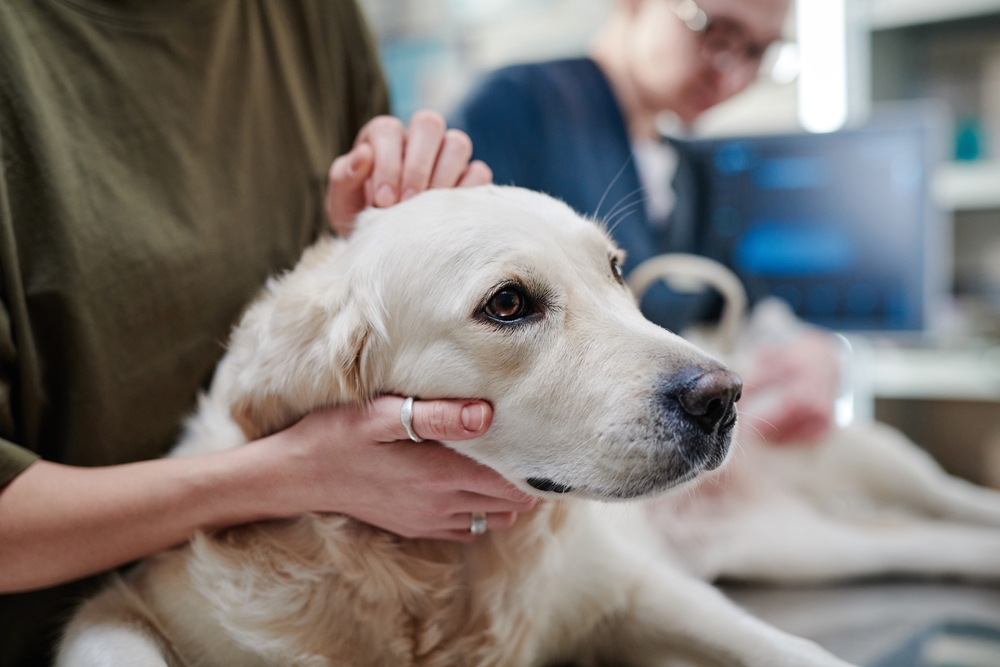Did you know that 1 in 4 dogs and cats will develop cancer at some point in their lives? Cancer is one of the leading health concerns for pets, and while the diagnosis can be overwhelming, knowledge is power. Recognizing the early signs and seeking prompt care can dramatically improve your pet’s quality of life and outcomes. At Palm City Animal Medical Center in Palm City, Florida, we provide compassionate, comprehensive care for pets facing cancer, focusing on early detection, advanced treatments, and emotional support for owners.
Understanding Cancer in Pets
Cancer in pets, much like in humans, results from the abnormal growth of cells that can disrupt normal body functions. It can occur in virtually any part of the body, including the skin, bones, and internal organs. Early diagnosis and intervention are key to improving your pet’s prognosis.
Common Types of Cancer in Pets:
- Lymphoma: Affects the lymph nodes and immune system, often seen in dogs and cats. Symptoms include swollen lymph nodes and lethargy.
- Mast Cell Tumors: Appear as lumps or bumps on the skin, which can be benign or aggressive.
- Osteosarcoma: A bone cancer that primarily affects larger dog breeds, leading to limping or visible swelling.
- Hemangiosarcoma: An aggressive cancer of the blood vessels, typically affecting the spleen or heart.
Key Takeaways:
- Not every lump or bump is cancerous, but timely evaluation is critical.
- Cancer treatments are advancing, offering better outcomes than ever before.
- Routine veterinary care increases the likelihood of early detection.
For detailed information on how we diagnose and treat various conditions, visit our Veterinary Services page.
Recognizing Symptoms of Cancer in Pets
Pets can’t tell us when something is wrong, so it’s up to owners to notice changes in their health and behavior. The earlier cancer is detected, the better the chances of effective treatment.
Common Warning Signs to Watch For:
- Unusual lumps or swellings: Persistent growths or lumps that don’t resolve on their own.
- Sores that won’t heal: Non-healing wounds could signal an underlying issue.
- Unexplained weight loss: Sudden drops in weight despite a regular appetite.
- Changes in appetite: Difficulty chewing, swallowing, or a refusal to eat.
- Bleeding or discharge: Unusual bleeding from the mouth, nose, or other areas.
- Lethargy: A noticeable decrease in energy or interest in daily activities.
- Lameness or difficulty walking: Persistent limping or stiffness may indicate bone cancer.
- Difficulty breathing or elimination issues: Struggling to urinate, defecate, or catch their breath.
Pro Tip: Many of these symptoms can mimic other, less severe conditions. Always consult your veterinarian if you’re unsure.
Regular exams are critical to catching subtle changes in your pet’s health.
Breeds and Cancer Risk
While cancer can affect any pet, certain breeds are more prone to specific types due to their genetic makeup. Knowing your pet’s breed predispositions can guide proactive health monitoring.
Breeds with Higher Cancer Risks:
- Golden Retrievers: Frequently develop lymphoma and hemangiosarcoma.
- Boxers: Prone to mast cell tumors.
- German Shepherds: Often experience osteosarcoma or splenic tumors.
- Flat-Coated Retrievers: At increased risk for hemangiosarcoma and soft tissue sarcomas.
For mixed-breed pets, a genetic test can help identify potential risks. Visit our post on breed-related health problems to learn how to better understand your pet’s unique needs.
The Role of Your Veterinarian
Veterinary expertise is invaluable in diagnosing and managing cancer in pets. At Palm City Animal Medical Center, we rely on a combination of advanced diagnostic tools to ensure accurate assessments.
Diagnostic Tools:
- Biopsies: A definitive method for identifying cancerous cells.
- Imaging Techniques: X-rays, ultrasounds, and MRIs can detect tumors or internal abnormalities.
- Bloodwork and Lab Tests: To monitor organ function and identify markers of disease.
Early intervention can lead to a wider range of treatment options and better outcomes. Meet our skilled Doctors to learn more about our specialized team.
Treatment Options for Cancer in Pets
At Palm City Animal Medical Center, we create individualized treatment plans tailored to each pet’s specific needs, emphasizing both their physical and emotional well-being.
Common Cancer Treatments:
- Surgery: Removes tumors when possible and alleviates discomfort.
- Chemotherapy: Effective for controlling cancer spread, particularly in lymphoma.
- Radiation Therapy: Used for specific localized cancers, such as nasal tumors.
- Immunotherapy: Boosts the immune system’s ability to fight cancer cells.
Pain management and nutritional support are integral to every treatment plan, ensuring your pet’s comfort throughout their journey.
Prevention and Early Detection

While not all cancers can be prevented, you can take steps to reduce your pet’s risk and ensure any issues are caught early.
Tips for Cancer Prevention:
- Maintain a Healthy Diet: Quality nutrition can improve overall immunity and reduce inflammation.
- Avoid Known Carcinogens: Limit exposure to tobacco smoke, pesticides, and toxic household chemicals.
- Regular Veterinary Check-Ups: Bi-annual wellness exams can identify early signs of trouble.
Additionally, spaying or neutering your pet can significantly reduce their risk of developing certain reproductive cancers.
Need a wellness visit? Schedule one today through our Contact page.
Emotional Support for Pet Owners
Caring for a pet with cancer can be emotionally draining. At Palm City Animal Medical Center, we provide resources and support to help you navigate this challenging time. Whether it’s answering your questions or offering a comforting space during treatment, we’re here to support you and your beloved companion.
Cancer in pets can be a tough diagnosis, but with awareness, early intervention, and expert care, it’s possible to improve outcomes and maintain your pet’s quality of life. If you notice any signs mentioned above or have concerns about your pet’s health, don’t hesitate to reach out. At Palm City Animal Medical Center, we’re committed to providing compassionate, state-of-the-art care for every pet and their family.








Leave A Comment